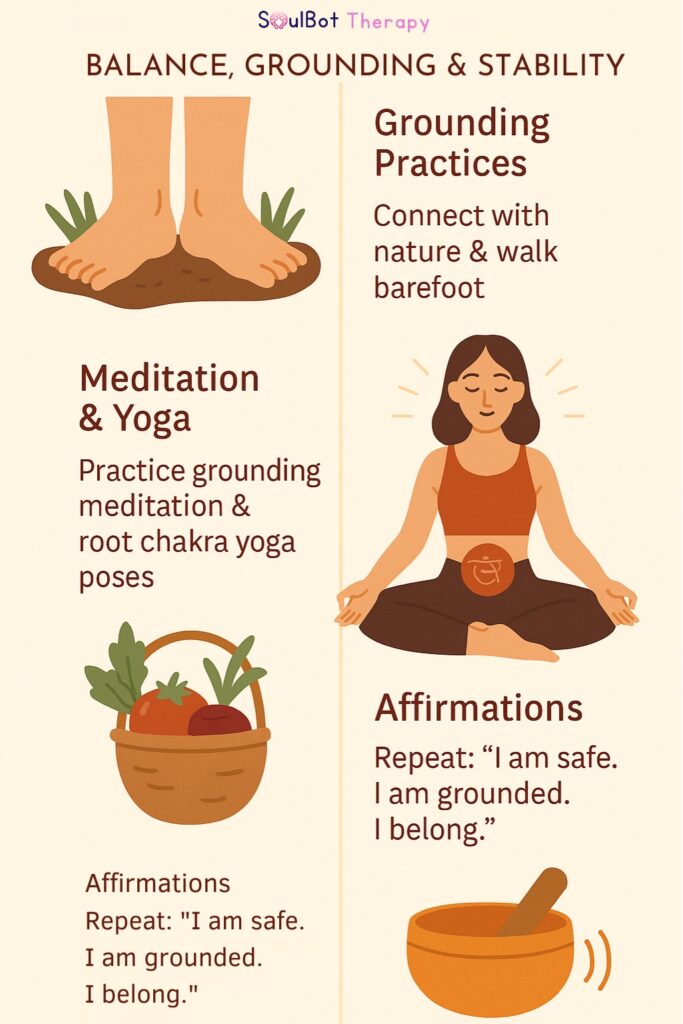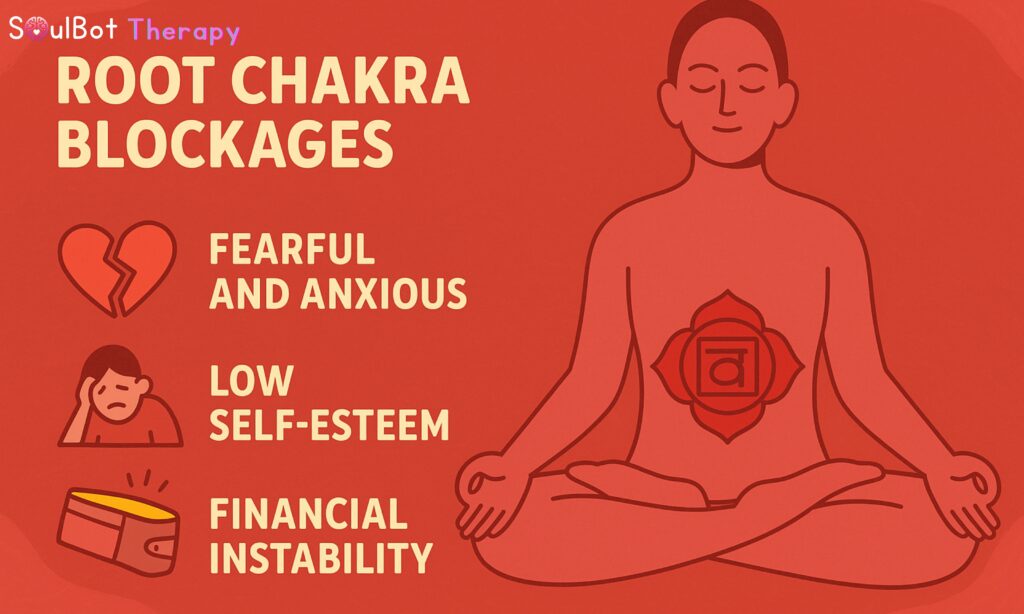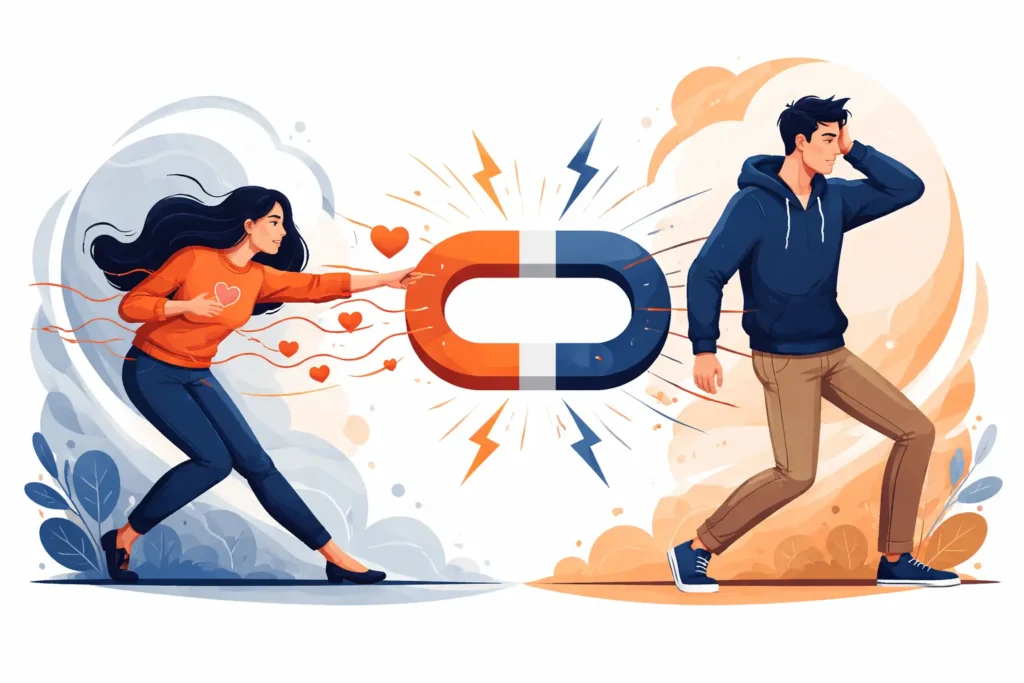The root chakra is your foundation, sense of safety, stability, and belonging. When balanced, you feel grounded and confident. But when blocked, insecurity, fear, and emotional instability creep in. Let’s break down the emotional signs of root chakra blockages and explore practical remedies to restore balance.
🧠 Want to know how firm your boundaries really are?
Take our Emotional Boundaries Self-Assessment and discover where you stand. Your results might surprise you. Start the assessmentWhat Is the Root Chakra and Why Is It Important?
The root chakra (Muladhara) sits at the base of your spine. In yogic tradition, it represents grounding, survival, and connection to the physical world. A balanced root chakra helps you feel secure in relationships, finances, and daily life.
When the root chakra is blocked, you may experience:
- Constant worry about safety or money.
- Feeling disconnected from your body.
- A lack of trust in yourself or others.
💡 SoulFact: According to the Chopra Center, the root chakra governs our sense of survival and stability, influencing physical and emotional well-being.

What Are the Emotional Signs of Root Chakra Blockages?
Blocked root chakras show up emotionally before physically. Look out for these signs:
- Persistent anxiety and fear.
- Feeling “ungrounded” or disconnected.
- Struggling with insecurity or low self-esteem.
- Anger or irritability when under stress.
- Difficulty committing to relationships.
These emotional signs of root chakra imbalance are your body’s way of signaling a need for grounding and healing.
How Do Root Chakra Imbalances Affect Mental Health?
A blocked root chakra doesn’t just create emotional turbulence; it directly impacts your mental health. People often report:
- Heightened stress and overthinking.
- Panic or insecurity in relationships.
- Difficulty focusing or making decisions.
- A constant sense of being unsafe, even without real threats.
🔗 External Insight: A study published in Frontiers in Psychology found that mindfulness and meditation significantly reduce anxiety, supporting how root chakra healing practices calm the nervous system.
What Causes Root Chakra Blockages?
Several factors can block the root chakra:
- Trauma or instability in childhood (e.g., neglect, financial insecurity).
- Sudden life changes like job loss, breakup, or relocation.
- Lack of grounding habits (overuse of technology, sedentary lifestyle).
- Unprocessed fear carried over time.
How to Heal the Root Chakra Naturally?
Healing the root chakra isn’t about magic but consistent practices that restore stability.
1. Root Chakra Healing Practices
- Yoga poses like Mountain (Tadasana) and Warrior (Virabhadrasana).
- Meditation focused on grounding.
- Affirmations: “I am safe. I am secure. I am grounded.”
- Sound healing with low-frequency tones or chanting “Lam.”
2. Grounding Techniques for Anxiety
- Walking barefoot on grass or soil.
- Breathing exercises to calm the nervous system.
- Journaling fears and reframing them with solutions.
- Limiting overstimulation (screens, caffeine, chaotic environments).
💡 SoulFact: Research from the NCBI shows that regular meditation reduces anxiety and improves resilience directly helping unblock root chakra imbalances.
When Should You Seek Professional Support?
If root chakra blockages cause chronic anxiety, relationship instability, or overwhelming insecurity, seeking professional support may help. Therapists, energy healers, or mindfulness coaches can provide structured guidance alongside personal practice.
Conclusion: Balance Starts at the Root
Your root chakra is the foundation of emotional and mental stability. Blockages show up as anxiety, insecurity, and disconnection, but the good news is, healing is possible. You can restore stability and reclaim a stronger sense of safety by practicing grounding, meditation, and chakra-focused techniques.
👉 Need daily guidance? Chat with SoulBot, your AI mental health companion, for personalized grounding practices anytime.








